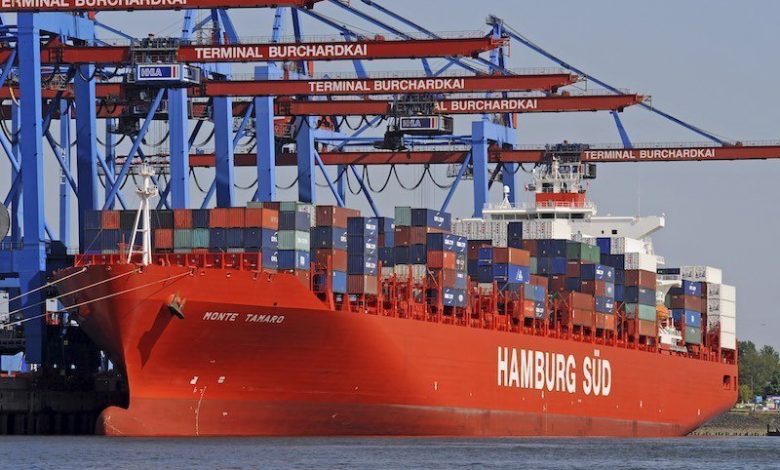The container shipping hunger games

Lars Jensen could well be container shipping’s Nostradamus.
As far back as 2011 the Splash contributor was predicting there would be just six to eight global carriers by the mid-2020s. Back then there were still 20 global liners in what was a very fragmented industry. Still, even Jensen, the founder of Seaintelligence Consulting, could not have predicted the speed with which the sector consolidated after the logjam that was Hanjin Shipping was taken out of the picture last year.
By 2021, Drewry Maritime Financial Research statistics show that the top seven liners will control roughly three-quarters of all containerships, compared with 37% in 2005.
Pricing power has firmly shifted in favour of the carriers over the shippers with Olaf Merk, the OECD’s shipping expert, labelling container shipping as an “oligopoly” this week in the wake of Cosco’s $6.3bn bid for OOCL.
A spokesperson for the Global Shippers Forum told us on Tuesday that box shipping’s new line up of mega carriers must not be used as a way to “smuggle back discredited cartelising behaviour”. Given the ongoing investigations by the FBI into possible collusion among Box Club members, I imagine that carriers will be acting very, very carefully at the moment when it comes to pricing.
End game for consolidation?
Is that it for the musical chairs among the top 10? I’d argue it is – bar a possible Taiwanese merger between old foes Evergreen and Yang Ming. Increasingly competition watchdogs will frown on any of the big names getting any more dominant.
One dangerous downside for liners from all this merger activity is the inevitable brain drain from the industry.
Drewry’s Neil Dekker, writing a personal column on LinkedIn this week, warned that so many people from the likes of UASC, China Shipping, APL, Hamburg Sud, and latterly OOCL, will or have left the business in the past year or two.
“Their experience and knowledge cannot be recaptured overnight,” Dekker stated.

I think the new alliances have more to do with managing costs than they do with raising prices.